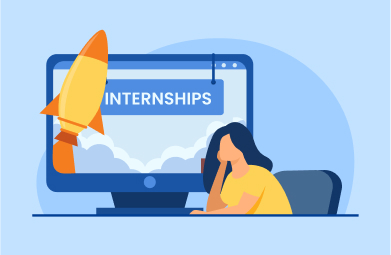Acing The Interview – Five Things To Watch Out For
 Rajeev is one worried guy these days. He has been toiling hard for the last six months preparing for aptitude tests for the various companies that would visit the campus during the placement season; and also for CAT. Six months down the road, as expected, he cracked the aptitude test for his dream company visiting on Day Zero, and an enviable score in CAT. The only hurdle left between him and a career made of gold is an interview.
Rajeev is one worried guy these days. He has been toiling hard for the last six months preparing for aptitude tests for the various companies that would visit the campus during the placement season; and also for CAT. Six months down the road, as expected, he cracked the aptitude test for his dream company visiting on Day Zero, and an enviable score in CAT. The only hurdle left between him and a career made of gold is an interview.
And that is what is giving Rajeev nightmares. Last 6 months were all spent preparing for case studies, aptitude tests, and brushing up technical knowledge and he could not pay attention to how to crack an interview.
With Rajeev’s case in hand, we thought we should help him with some necessary tips. Here are our top five, for Rajeev and readers out there who think themselves as Rajeev’s alter-ego.
1. A few basics (before, during, and after the interview)
Do Mock interviews with friends/seniors, err on the conservative side when deciding what to wear; have copies of your CV, certificates, a pen and few blank papers neatly tucked into a folder; arrive 10 minutes early & make yourself comfortable with the environment; sip a glass of water; breathe deep for few seconds before walking into the interview room; put your mobile phone in silent/switch off mode, knock on the door & greet everyone in the panel gently and warmly.
Sit upright, maintain eye contact, don’t shake legs, don’t bite nails, don’t scratch, listen carefully, and speak confidently. Make it a two-way conversation rather than a boring one-way interrogation!
Thank everyone for their time, clean up whiteboard, put your papers back into the folder neatly and walk away confidently and close the door gently.
It’s amazing to see how candidates miss out on such basic courtesies and ruin their chances of selection even before the interview began!
2. Are you sure you want the very job you’re interviewing for?
Often happens that when one sits for an interview not fully convinced whether the job is really important to him or meant for him. This doubt, once in your mind, can cast a dark cloud on the level of confidence you are going to exude in front of the interview panel. You will need that extra effort to sound genuinely interested in the company and the job during the interview process!
This question can be answered by asking yourself what attracted you to the job profile/company in first place. Is it in line with either your educational qualification or your personal interests that you want to pursue into a career? Being prepared on this will ensure that the interview doesn’t hit a roadblock on the very obvious questions that recruiters will ask – why do you want to work with us? How do you fit into this role? Why should we recruit you or why are you a good candidate for this job? What are the skills sets you bring to our table? How can you contribute to our team?
3. How well do you know the company you are interviewing for?
This is one point most of the candidates ignore, and often regret doing so later. When you appear for an interview, the recruiters want to see if you’re genuinely interested in the role and what the company does. It is not very difficult to gather basic information about the company. This includes the industry characteristics in which it is operating, size of the company, geographies it is working in, recent developments, news articles etc. Also understand the job profile you are getting into. Speak to someone (may be a college senior) who’s in that industry, or has a similar job profile, either in the same or different company! This research would also allow you come up with some genuine questions to ask the interviewers, such as probable career progression, training opportunities for high-performing employees, etc! Companies love the candidates who have done their homework right and this is one thing that every candidate can do and is skill independent.
4. ‘Tell us something about yourself’ – THE question to face.
This question, in most of the cases, is used as an interview starter, an ice breaker. Since it’s quite common for recruiters to ask this, you should prepare a decent introduction about yourself, keeping in mind your strengths and achievements. Make it a point not to make it too long for the recruiters to get bored, and at the same time, you will have to present yourself as a well-deserving candidate for the job. Focus more on presenting personal traits and experiences, things that cannot be put in your Resumé, and some interesting things about yourself that may otherwise not be asked once the formal process starts! You may not want to spend too much time on your family background, parents’ occupation, siblings education etc. and focus more on who you are, what you enjoy doing the most, what you think your strengths are etc.
5. Interpersonal Skill Assessment
At times, post formal introduction and ice breaking, you can expect a barrage of queries being shot at you, from all angles, and often not even giving you enough time to think and reply. Interviewers may try to test your patience that way, to see how much you can stretch yourself to handle the pressure you will be facing once on the job once you join the company. This may involve continuously contradicting your responses, although they know that you are right. This can be taken as an opportunity to display your technical as well as soft skills.
The key during such interviews (also called stress interview) is to stay calm and composed. A bit of nervousness is OK (in fact good to have) and eventually your confidence in your own abilities would sail you through.
Preparing for an interview is like planning your way to nirvana by showcasing your strengths and downplaying your weaknesses. If you are academically sound, have good communication skills, and an aptitude for the job, you know you can crack any interview by preparing for it meticulously. Sounds tougher than said? You bet.
But then, as they say, you should not lose before losing. Keep faith in yourself and take the plunge. Even failures would teach you something important and prepare for the success ahead!
About the author – GSK Chaitanya, an IIT Madras-ISB alumnus, is regarded as a Funda God  by colleagues, juniors, and seniors alike. His diverse experience includes working at TNRDC, CRISIL, & currently with the Adani Group. When he is not busy putting fundaes, he can be found talking and living French :). The article has been written in his personal capacity and does not reflect the views of any of his current or previous employers.
by colleagues, juniors, and seniors alike. His diverse experience includes working at TNRDC, CRISIL, & currently with the Adani Group. When he is not busy putting fundaes, he can be found talking and living French :). The article has been written in his personal capacity and does not reflect the views of any of his current or previous employers.



